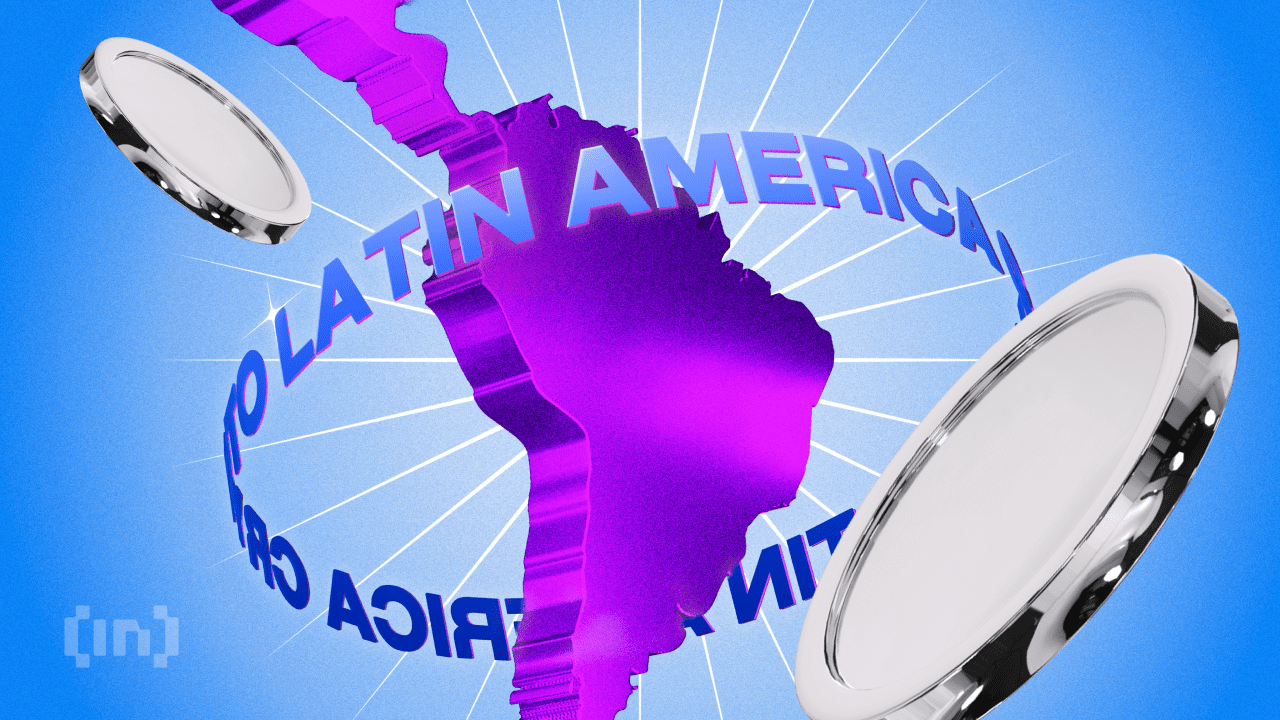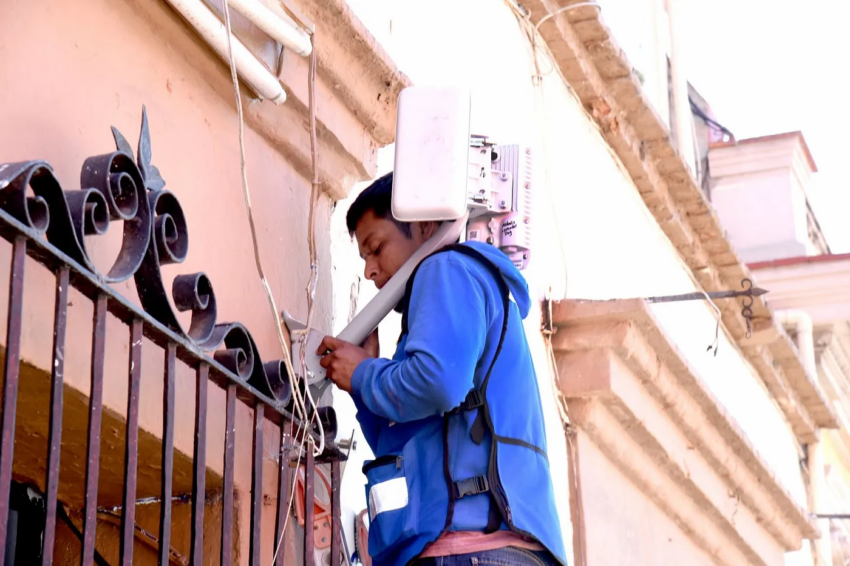LATAM Crypto Roundup: Helium Expands in Mexico, Worldcoin Arrives to Ecuador, and More
0
0

BeInCrypto comprehensive Latam Crypto Roundup brings Latin America’s most important news and trends. With reporters in Brazil, Mexico, Argentina, and more, we cover the latest updates and insights from the region’s crypto scene.
This week’s roundup includes stories about Helium’s expansion in Mexico, Worldcoin’s arrival to Ecuador, and more.
Venezuelan Crypto Community Reacts to Solesbot Outage
The sudden closure of Solesbot has sparked outrage among its users in Venezuela, igniting serious concerns within the cryptocurrency community. Promoted as a tool for automated cryptocurrency trading, Solesbot announced a significant outage on June 16, citing “operational issues.” The vague explanation and prolonged suspension have led to suspicions of a possible Ponzi scheme.
Solesbot quickly earned the trust of many Venezuelan investors with promises of high returns and its AI-based technology. The platform facilitated complex trades without human intervention, leveraging cryptocurrency market volatility to generate substantial profits. However, the recent disruption has unleashed a wave of criticism and accusations on social media.
Read more: 15 Most Common Crypto Scams To Look Out For
 Solesbot Main Page. Source: Solesbot
Solesbot Main Page. Source: Solesbot
Allegations suggest that Solesbot may be a Ponzi scheme, using new investors’ funds to pay older users, creating an unsustainable appearance of profitability. Some analysts believe the closure signals a potential bubble in Venezuela’s cryptocurrency sector, especially on platforms promising high returns with little transparency.
“Disappointed and angry with how far behind we are in Latam regarding financial education… greed and ignorance will continue to do their thing,” commented CriptoLawyer forcefully.
In short, Solesbot’s collapse has left many Venezuelan investors in a precarious situation, questioning the viability and safety of their cryptocurrency investments. The crypto community remains vigilant, awaiting the company’s actions to resolve this crisis and restore user confidence.
Javier Milei Reiterates the Possibility of Using Bitcoin in Argentina
In a recent statement, Argentine President Javier Milei reaffirmed his administration’s commitment to allowing free competition of currencies, including Bitcoin.
“There will be free competition of currencies, so if you want to use Bitcoin, there will be no problems,” Milei stated. “You can also use other units such as WTI, BTU, or whatever suits your business best. Accounting is solved by the functional currency method.”
This policy appears to be inspired by Nayib Bukele’s administration in El Salvador, which has legalized the free circulation of Bitcoin. However, the Argentine context presents unique challenges. The country grapples with persistent inflation and tax uncertainties associated with cryptocurrencies. Additionally, Argentinians have shown a marked preference for stablecoins as a store of value over Bitcoin.
Read more: Crypto Adoption in Argentina: Everything To Know
Despite these hurdles, Milei is determined to integrate Bitcoin into the Argentine economy, albeit in his manner. His administration, however, has faced criticism. In early 2024, Milei received backlash from the crypto community, including from El Salvador, for yielding to the Financial Action Task Force (FATF) by establishing stricter regulations for Virtual Asset Service Providers (VASPs).
Allowing free currency competition in Argentina could signify a major shift in the country’s economy, especially amid high inflation and economic uncertainty. The successful implementation and acceptance of these measures will remain to be seen in the coming months.
Helium Expands Coverage in Mexico
Solana-based decentralized wireless blockchain network Helium has announced the expansion of its network in Mexico, thanks to a partnership between Helium Mobile and LongFi Solutions. This collaboration will implement the mobile network in Oaxaca, Mexico.
The Helium Foundation aims to test and demonstrate the effectiveness of community-driven infrastructure in enhancing connectivity. This network expansion project focuses on underserved areas, aiming to bridge the connectivity gap.
Helium highlighted that the Oaxaca expansion showcases the potential of decentralized wireless technology in telecommunications. This infrastructure enhancement significantly improves traditional mobile services, laying the groundwork for future mobile network providers.
“For residents, the arrival of Helium’s mobile hotspots has been transformative. These communities, previously hampered by unreliable mobile services, can now enjoy stable, high-speed connectivity,” the Helium Foundation stated. “This improvement has catalyzed communications, expanded access to information, and created new opportunities — changes that contribute to the growth of the Helium network.”
Read more: What Is DePIN (Decentralized Physical Infrastructure Networks)?
 Helium Equipment Installed in Oaxaca, Mexico. Source: Helium
Helium Equipment Installed in Oaxaca, Mexico. Source: Helium
The devices connect to the Helium Network through Hotspots, ensuring uninterrupted service. This is not Helium’s first venture into Mexico; earlier this year, the company partnered with Telefónica to introduce mobile hotspots.
In January, Telefónica partnered with Nova Labs, a decentralized communications company, and Helium to install mobile hotspots in Mexico. This pilot project served Oaxaca and Mexico City customers by integrating Helium’s decentralized blockchain technology. The devices enabled secure and controlled mobile data traffic offloading over the Helium network via SIM cards.
“This program in Mexico is critical to evaluate the performance and customer satisfaction of this solution and its associated costs,” the statement read. “Our expectation, if successful, is to incorporate this into our mobile network portfolio across different countries in the region.”
Helium’s efforts in Mexico show the potential of decentralized networks to address connectivity issues in underserved areas, promising a future of improved communication and access to information.
El Salvador’s President Nayib Bukele Proposes Creation of Bitcoin Bank
El Salvador’s President Nayib Bukele has proposed establishing a private investment bank that will operate with Bitcoin and dollars. This initiative is part of Bukele’s broader economic plan following his re-election.
“As part of our economic plan for El Salvador, we propose the creation of BPI, a Private Investment Bank, where we can diversify the financing options offered to potential investors in dollars and Bitcoin,” stated Milena Mayorga, Ambassador of El Salvador to the United States.
Read more: Crypto vs. Banking: Which Is a Smarter Choice?
Max Keiser, Bukele’s senior advisor on Bitcoin issues, believes such a move could significantly accelerate El Salvador’s economic growth. He mentioned that this initiative could make Cathie Wood’s forecast for the country’s net gross domestic product (GDP) growth more likely.
However, Bukele’s proposal has yet to receive legislative approval. The Technology, Tourism, and Investment Commission needs to review and vote on the plan. A final decision on the establishment of Bitcoin banks in El Salvador has not been made, but the proposal itself demonstrates the country’s serious commitment to Bitcoin integration.
Worldcoin Arrives in Ecuador
Worldcoin has officially launched in Ecuador, consolidating its presence in the Latin American market. This strategic move is part of a broader expansion plan to strengthen regional cryptocurrency adoption.
Worldcoin’s entry into Ecuador comes when interest in cryptocurrencies surges, driven by the search for financial alternatives amid economic volatility. The potential impact of Worldcoin extends beyond the adoption of its cryptocurrency, nurturing an ecosystem of startups and entrepreneurs who view cryptocurrencies as opportunities for innovation.
“Verifications will be available at six locations in two Ecuadorian cities, starting with the port city of Guayaquil on June 26 and, a day later, the capital Quito on June 27. Anyone 18 years of age or older interested in joining the 5,778,467 people participating in the Worldcoin network can verify their World ID at one of these locations,” Worldcoin’s official statement notes.
Read more: How to Buy Worldcoin (WLD) and Everything You Need to Know
Worldcoin’s expansion in Latin America doesn’t stop in Ecuador. The company has extended its World ID verification to other regional markets, including Mexico, Peru, and Colombia. Furthermore, Worldcoin announced the opening of 50 locations in 10 cities in Argentina, signifying its commitment to broadening its reach and influence.
Latin American Chamber of Lithium and Paraguay Agree on Mining Tokenization
The Latin American Chamber of Lithium (Calbamerica) and the government of Paraguay have signed an agreement to enhance transparency in mining transactions. This initiative aims to prevent large companies from under-invoicing when extracting minerals by leveraging blockchain technology for tokenizing mining assets.
Pablo Rutigliano, president of Calbamerica, announced on social media that the agreement includes using blockchain to increase jobs and economic growth in the region. The partnership seeks to develop the lithium industry and energy use for companies, digitize contracts, and use mining tokenization to boost Paraguay’s mining initiatives.
“This agreement not only represents an opportunity for Paraguay’s growth but also sets an example for the region on addressing energy transition challenges innovatively and collaboratively,” explained Rutigliano. “It demonstrates the government’s commitment to this development vision, supported by experts in lithium and sustainable energy.”
Read more: Is Crypto Mining Profitable in 2024?
Recently, Paraguayan Minister of Industry and Commerce Javier Giménez stated that President Santiago Peña’s administration aims to legalize cryptocurrency mining in Paraguay to attract foreign industries. According to Giménez, the country has sufficient energy for 10,000 new industries but faces potential delays. Paraguay has been working on regulating cryptocurrency mining to attract foreign direct investment for months.
As the Latin American crypto scene grows, these stories highlight the region’s increasing influence in the global market. From Argentine President Bitcoin ambitions to Calbamerica and Paraguay alliance, LATAM is positioning itself as a key player in the tech world. Stay tuned for more updates and insights in next week’s roundup.
0
0









